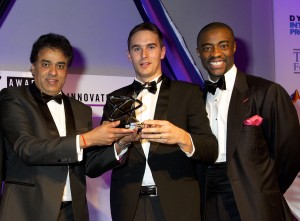
Environmental Technology Roadmap Initiative
Friday 13 May, 9am-4pm, Viridor Room, SS Great Britain, Bristol
What is a Technology Roadmap?
A Technology Roadmap is a plan that matches your short-term and long-term goals with specific technology solutions to help meet those goals. This plan applies to new products, processes, and emerging technologies. Developing a roadmap has three major benefits.
- It helps reach a consensus about a set of needs and the technologies required to satisfy those needs
- It provides a forum to help forecast technology developments in the sector
- It provides a network to help plan and coordinate technology developments
Who should attend?
Businesses who want to develop new products, processes, technologies or expertise in the following sectors:
- Renewable Energy
- Sustainable Transport
- Waste Management
- Sustainable Construction
Why should I attend?
Be part of an open innovation community and identify many opportunities for business growth
Opportunity to understand the technology needs of businesses in your sector group
Opportunity to acquire knowledge from local universities and establish a collaborative relationship
Develop on-going relationships with similar communities across the UK, Europe and beyond
Participate in collaborative Research and Development projects in the UK and Europe (possible funding)
This is a fantastic opportunity to be part of an ongoing business community where businesses can influence the universities and wider knowledge base on the technology required to drive the environmental industry forward.
Places are limited for this event, so register early to ensure your place by clicking here






 Watch this excellent short video from
Watch this excellent short video from  Watch this excellent short video from BU’s Bryce Dyer (School of Design, Engineering and Computing) who is informing the 2012 Paralympics committee on the performance of lower limb prosthetics.
Watch this excellent short video from BU’s Bryce Dyer (School of Design, Engineering and Computing) who is informing the 2012 Paralympics committee on the performance of lower limb prosthetics.
















 REF Code of Practice consultation is open!
REF Code of Practice consultation is open! BU Leads AI-Driven Work Package in EU Horizon SUSHEAS Project
BU Leads AI-Driven Work Package in EU Horizon SUSHEAS Project Evidence Synthesis Centre open at Kathmandu University
Evidence Synthesis Centre open at Kathmandu University Expand Your Impact: Collaboration and Networking Workshops for Researchers
Expand Your Impact: Collaboration and Networking Workshops for Researchers ECR Funding Open Call: Research Culture & Community Grant – Apply now
ECR Funding Open Call: Research Culture & Community Grant – Apply now ECR Funding Open Call: Research Culture & Community Grant – Application Deadline Friday 12 December
ECR Funding Open Call: Research Culture & Community Grant – Application Deadline Friday 12 December MSCA Postdoctoral Fellowships 2025 Call
MSCA Postdoctoral Fellowships 2025 Call ERC Advanced Grant 2025 Webinar
ERC Advanced Grant 2025 Webinar Update on UKRO services
Update on UKRO services European research project exploring use of ‘virtual twins’ to better manage metabolic associated fatty liver disease
European research project exploring use of ‘virtual twins’ to better manage metabolic associated fatty liver disease